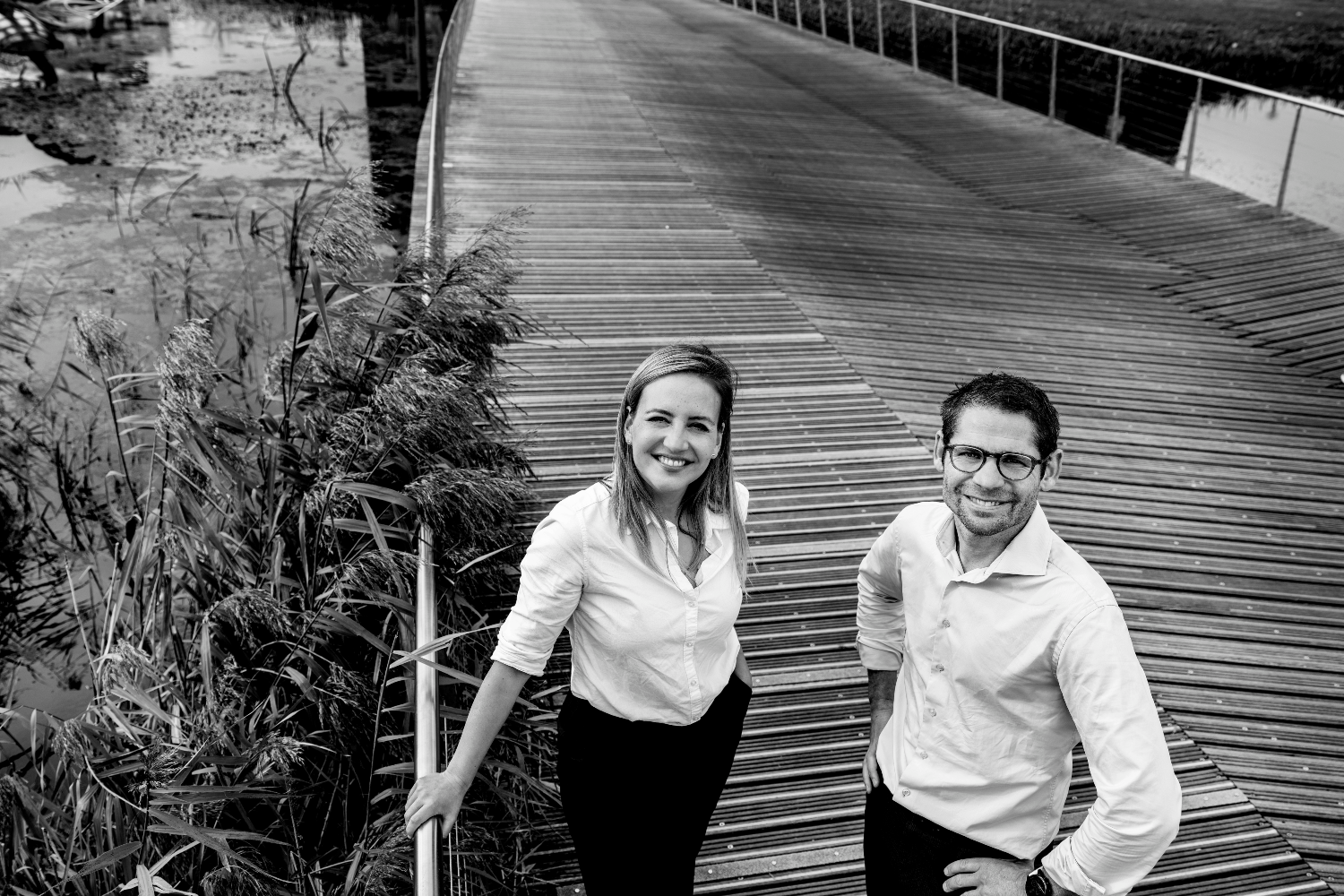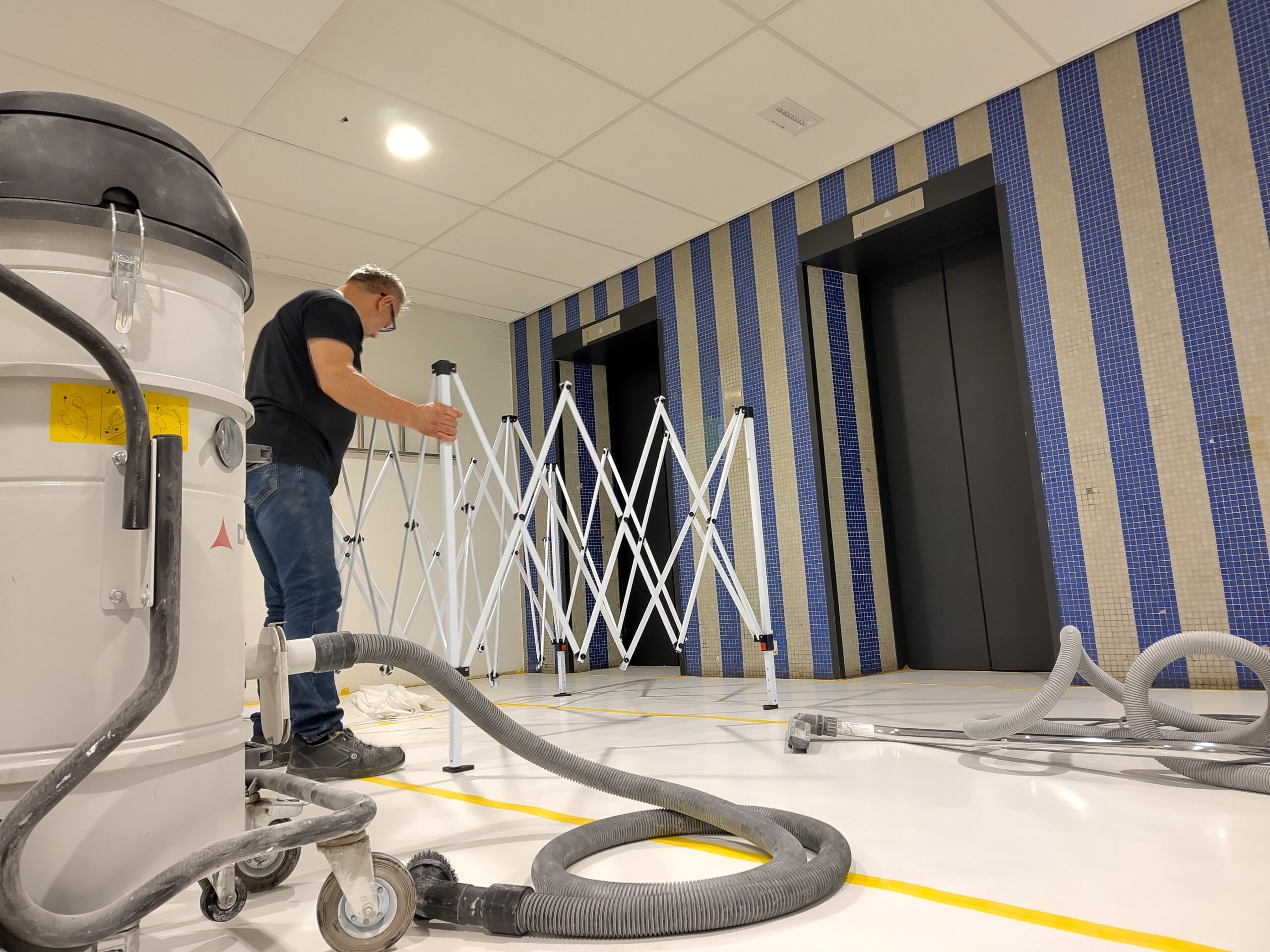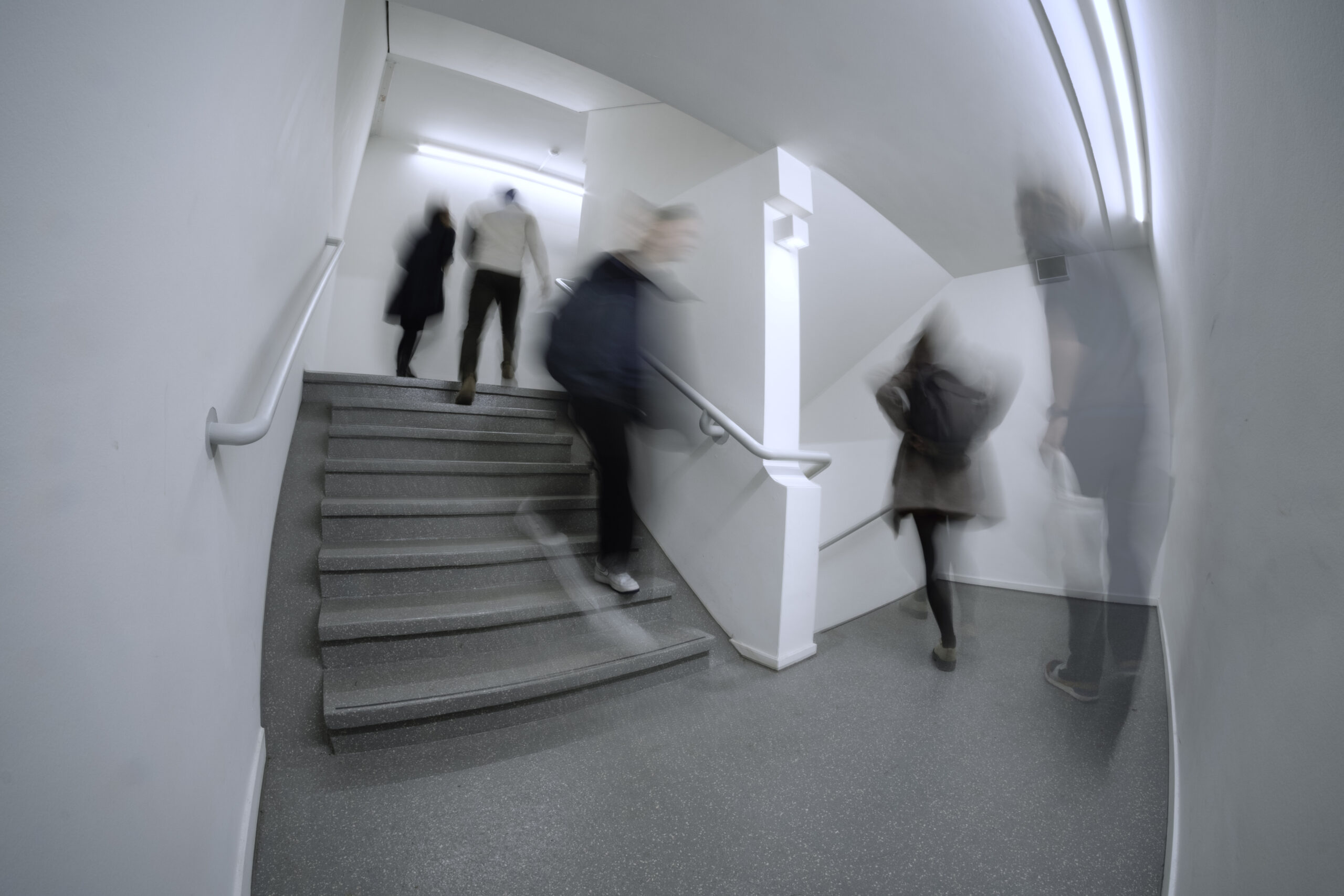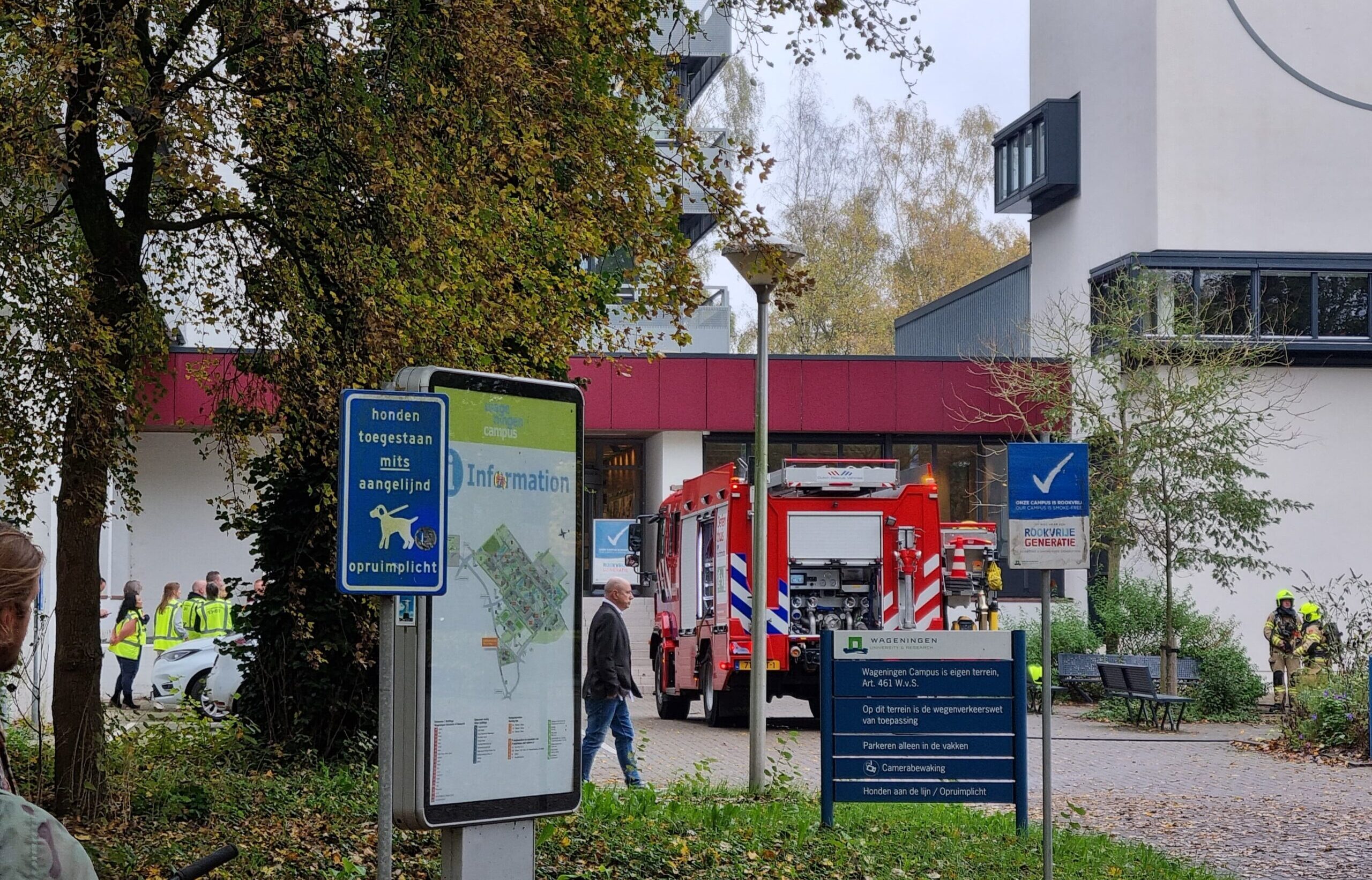It was predictable that the departure of Peter Feindt and Noelle Aarts in 2017 would leave a big gap to fill at Strategic Communication. But not that it would take as long as it has. But since July, the group has at last had a chair holder again. And he did not come alone. ‘We are doing this on an equal basis.’
The chair was unoccupied for precisely four years and ten months. ‘Pretty intense,’ confirms Sanne Kruikemeier, who has been professor of Digital Media & Society since April. In her very first meeting with the chair group, she witnessed the agenda item ‘who will be the new chair?’ finally being ticked after five years. She knows the new chair holder well, having worked closely with him for years at the University of Amsterdam (UvA). Rens Vliegenthart started three months after her, but their move to Wageningen was really a joint one.
From no to maybe
Naturally, Resource is curious to know how that dual transfer went: who didn’t want to go without whom, was WUR up for it right from the start, what is the procedure in a case like that, and what happens if one gets the job and the other doesn’t…? Vliegenthart chuckles at the questions. ‘A lot went on in the run-up to it,’ he admits. He was on the appointment committee for the new chair three times, but no appointment was made. ‘Apparently I then joked that if they still didn’t have anyone after 10 years I would come myself,’ he recalls. And yet when he was seriously sounded out last summer, he initially said no. ‘Until WUR asked me whether a context was conceivable in which a transfer would be attractive. Then I texted Sanne. I had already drawn WUR’s attention to her, as a top communications scientist that WUR should definitely have on board. And that’s how the idea came up of the two of us making the move.’
Only together will this move be a success
But it wasn’t a done deal yet. Vliegenthart: ‘Our assessment was that a move would only be a success if we had enough clout – if we could do it together, on an equal footing, so both as professors.’ But Kruikemeier wasn’t a full professor yet. ‘That’s why I went through the whole process of becoming a personal professor first,’ she says. Vliegenthart chips in: ‘I had my first job interview the day after it became clear that Sanne was going to succeed (and WUR asked her to come anyway, regardless of whether I came).’ And so, in one fell swoop, WUR gained two professors: a male chair holder and a female full professor. ‘Although I really wouldn’t have minded if Sanne had become the chair,’ says Vliegenthart.
Wageningen themes
The attraction of the move lay largely in the Wageningen context, they explain. Kruikemeier: ‘I do a lot of research into political communication in the digital domain; social and other online media. You see Wageningen topics coming up more and more often: climate change, the nitrogen crisis, meat consumption you name it. As a diehard communication scientist, it’s very exciting to me to investigate these frequently politicized subjects from a communication perspective. It’s really relevant to society.’
Vliegenthart too is very interested in the Wageningen domain. ‘Always was,’ he says. ‘As a secondary schoolboy I even attended the information day on Food Technology. In the end I chose to do political science and socio-cultural sciences at the VU University Amsterdam, but the interest was there and has always remained.’ And there were other considerations making the Leeuwenborch an appealing workplace for Vliegenthart. ‘I was at a kind of crossroads in my life: in my early forties, promoted to research director of a large research school in Amsterdam (the Amsterdam School of Communication Research ASCoR, ed.). Nice, but it meant less and less time for research and teaching. And where do you go from there? Several other universities sounded me out, but each time I thought: nah. I wanted to both be involved at the academic level and build something new. You can do that here.’
Complex
It’s a good thing that is what he was looking for, because the task facing Kruikemeier and Vliegenthart is not easy. If a group is without a chair for nearly five years, that leaves its mark. ‘That is true, but the group has done a good job of keeping the show on the road, and excellent communication research is taking place here,’ responds Vliegenthart. Until recently, the group focused mainly on interpersonal forms of communication such as dialogues. The links with mainstream communication science could be strengthened, he acknowledges: ‘Communication has become so complex in recent years –with the mix of the media, the public, and the politicians. In the chair group, the media perspective is still somewhat neglected, whereas Sanne and I make it a standard part of our approach to research and education’. He clarifies: ‘It’s about major, far-reaching changes in how people consume their information. I love exploring those big political and social themes.’
The group has done a good job of keeping the show on the road
And do those big themes appeal to students too? ‘You would think they would, wouldn’t you?’ he replies. ‘Yet the BSc in Communication & Life Sciences is the smallest in Wageningen, with 20 first-year students. That is one of the things the rector has told us: it’s allowed to grow a bit. Yes, that is the ambition.’ Kruikemeier: ‘In our education, “the big questions” are very important. You have to make education relevant. That inspires the students too.’
Polarization and politicization
As for the research agenda: Kruikemeier has a strong track record as a researcher of online political campaigns, plus the way they are influenced by fake news. She investigates, for instance, whether online targeting has measurable effects and whether these can have a noticeable impact on the democratic process (spoiler alert: it seems they can, as political ads can influence voting behaviour). She will continue this line of research in Wageningen, together with several PhD students.
There are lots of new things in the pipeline as well, such as two imminent PhD projects on typical Wageningen themes: one on polarization around climate change and one on the politicization of science communication. ‘Take questions such as: how exactly do you get information across to the public, how do third parties such as right-wing populist political parties create their own narrative out of it, what are the consequences of that – like the hatred of scientists, journalists and politicians – and what solutions can be found for this?’ Kruikemeier continues: ‘I notice that the life sciences are looking more urgently for something to hold onto in this area. Just look at the nitrogen debate, where nitrogen benchmarks are being questioned and so is the credibility and integrity of scientists. There is a great need for more understanding of exactly how a public debate of this kind unfolds.’
We need more understanding of how such a public debate unfolds
‘We just have a lot of research ambitions,’ adds Vliegenthart. ‘There are things we want to figure out, and we also want to figure out how you figure such questions out – because methodologically, communication science faces quite a lot of challenges. Perhaps we should also draw clear attention to that methodological innovation, so that Strategic Communication will not just be seen as a group that does relevant research and understands the complexity of communication, but also as a group that uses a range of sound methods to do so.’
Have the new professors already seen any less positive sides of Wageningen? Vliegenthart thinks for a moment and then answers quite firmly. ‘That it is quite patriarchal here, male-dominated – I’d say that’s a thing. You just mentioned that it is great that, with Sanne, WUR has another female professor. But in the discussions about our appointments, I didn’t get the impression that it was a factor – even though there is a total imbalance, even in the Social Sciences Group, a field in which the gender balance is rapidly improving at other universities. In my view, WUR still has a way to go. But other than that, I haven’t seen anything I’m very worried about.’
Kruikemeier: ‘What strikes me most is that people are incredibly friendly. Students say that too. If they spend some time at other universities, they are glad to come back. You feel at home in this green haven.’
Rens Vliegenthart (1980)
Is: professor and chair of Strategic Communication.
And also, for example: editor of popular science blog StukRoodVlees.
Used to be: professor of Media and Society and academic director at the Amsterdam School of Communication Research (ASCoR, UvA). And president of The Young Academy (2016 to 2018).
Sanne Kruikemeier (1985)
Is: professor of Digital Media and Society.
And also, for example: board member of GVR/Slagzinnenregister
Used to be: associate professor of Political Communication and Journalism (UvA).
More detail: go to sannekruikemeier.wordpress.com for more on her research

 Sanne Kruikemeier en Rens Vliegenthart. Photo Duncan de Fey
Sanne Kruikemeier en Rens Vliegenthart. Photo Duncan de Fey 

